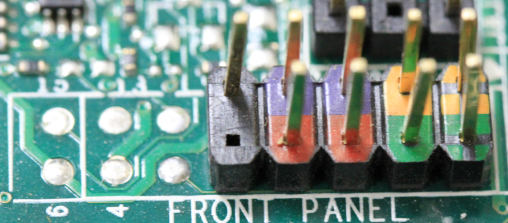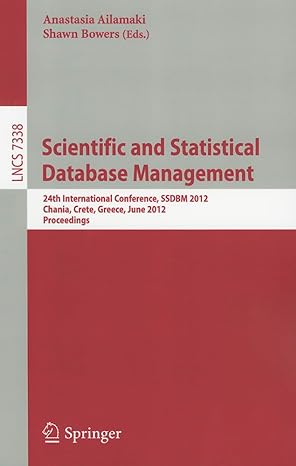Question
Obtain a motherboard . Using a drawing application of your choice, sheets of paper, or a digital camera, compose an image of the motherboard. You
Obtain a motherboard .
Using a drawing application of your choice, sheets of paper, or a digital camera, compose an image of the motherboard. You may not use an image made by another individual such as one on the Internet.
Identify the motherboard manufacturer and model number. You may use this information to find online documentation to assist you in the following steps. Indicate the full links to the online resources you used.
Resource(s): _____________________________________________________________
Indicate whether this motherboard is an ATX, BTX, ITX, or something else. Also explain how you were able to determine this.
On your motherboard image, label each of the following components. These are the minimum components that you need to identify. Include your labeled drawing immediately following this step (if you did a hand-drawing, you must scan it in and include it herein.)
CPU socket also indicate socket type and number (examples: LGA 1155, PGA AM3+
Expansion slots identify each type (PCI, PCIe, X1, PCIe X16, or other)
Memory slots identify by type (DDR, DDR2, DDR3, DDR4, or other) and indicate how you were able to tell. Try to be as specific as possible
Chipset (in many cases there will be two chips, identify them as Northbridge (Memory Controller Hub) and Southbridge (IO Controller Hub or Fusion Controller Hub). In other cases there may only be one (such as with Platform Control Hub)
BIOS chip (on many newer boards this may be difficult to locate. Consult with your instructor and dont stress too much over this one.
CMOS battery or battery holder. Note that this is not the CMOS itself!
I/O Ports (such as USB, video (if integrated), sound, Ethernet, etc.). Be specific on the I/O port names rather than collectively referring to them as the I/O ports.
Configuration jumpers (if any). Especially look for a CMOS reset jumper (or switch).
Storage device headers or slots (SATA, IDE, M.2, etc.)
Clock(s) crystal oscillators (metal cans).
Power supply connector(s). On most motherboards you will find either a 20 or 24 pin main power connector and also a 4 pin (2x2) or 8 pin (4X2) ATX-12V connector . Refer to http://www.smpspowersupply.com/connectors-pinouts.html
USB Headers (for attachment of front panel USB ports)
Front Panel Header (for attachment of power switch and indicator lights).
Example front panel header:

[Include your labeled image here]
Answer the following questions related to your motherboard:
Describe the differences between a PGA and an LGA CPU socket and the CPUs that would be used in each of these. __________________________________________
Using a CPU socket chart (obtainable on the Internet), identify at least two CPUs that could be installed on this board. Be specific as to the manufacturer and model numbers of the CPUs. _____________________________ ______________________________
Explain how to easily differentiate between different RAM modules and their sockets (such as how to differentiate DDR2 and DDR3) when no labels are present. _________ ______________________________________
Consider the memory slots on your motherboard. Are the slots (or the retaining tabs) all the same color? _____. What would be the significance of two (or more) different colored slots be? _______________________________________________________
Explain why older motherboards had two chips (Northbridge & Southbridge) in the chipset while newer ones typically have only a single chip chipset. ________________
What changes in technology occurred that drove motherboard manufacturers to stop using socketed BIOS chips? _____________________________________
Explain why removing the CMOS battery may not clear the CMOS contents on newer motherboards. ____________________________________
Step by Step Solution
There are 3 Steps involved in it
Step: 1

Get Instant Access to Expert-Tailored Solutions
See step-by-step solutions with expert insights and AI powered tools for academic success
Step: 2

Step: 3

Ace Your Homework with AI
Get the answers you need in no time with our AI-driven, step-by-step assistance
Get Started


